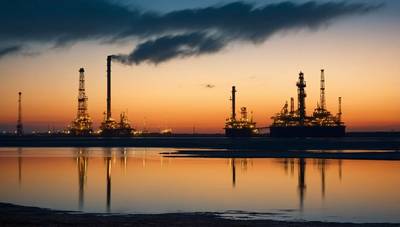The IEA reports that the decline rates of global oil and gas fields are increasing.
International Energy Agency reported on Tuesday that the natural rate of decline for oil and gas production is increasing, due to a greater reliance on deep-ocean and shale resources. The International Energy Agency said on Tuesday that companies would need to increase their investment pace to maintain the same output.
In a press release, the IEA, an agency that advises industrialised nations, warned that without continuing investment in existing fields the world would lose each year the equivalent oil production of Brazil and Norway combined, with consequences for markets and energy safety.
In a statement, Fatih Bibil said that only a small part of the upstream investment in oil and gas is allocated to meeting increases in demand. Nearly 90% of annual upstream investments are used to offset losses in supply at existing fields.
Our new analysis shows the decline rates have increased in recent years.
Donald Trump's administration has criticized the IEA for focusing on clean energy policies in recent years. In a report published four years ago, the IEA said that if climate targets were to be met, there would be no new investment in oil and gas projects.
The new IEA report, based on data collected from 15,000 oil and natural gas fields in the world, said that the global average rates of annual decline for conventional oil production and conventional gas are 5,6% and 6,8% respectively.
The IEA has estimated that a halt to upstream investments would reduce oil production by 5.5 millions barrels per day every year. This is up from 4 million bpd or less in 2010. The IEA said that a halt in upstream investment would cut oil supply by 5.5 million barrels per day each year, up from just under 4 million bpd in 2010.
It said that the decline in natural gas had risen from 180 billion cubic metres per year to 270 bcm.
The report stated that by 2024, 80% of the global oil production would come from fields which had already reached their maximum production. Reporting by Seher dareen, London; Editing and production by Alex Lawler & Edmund Klamann
(source: Reuters)





